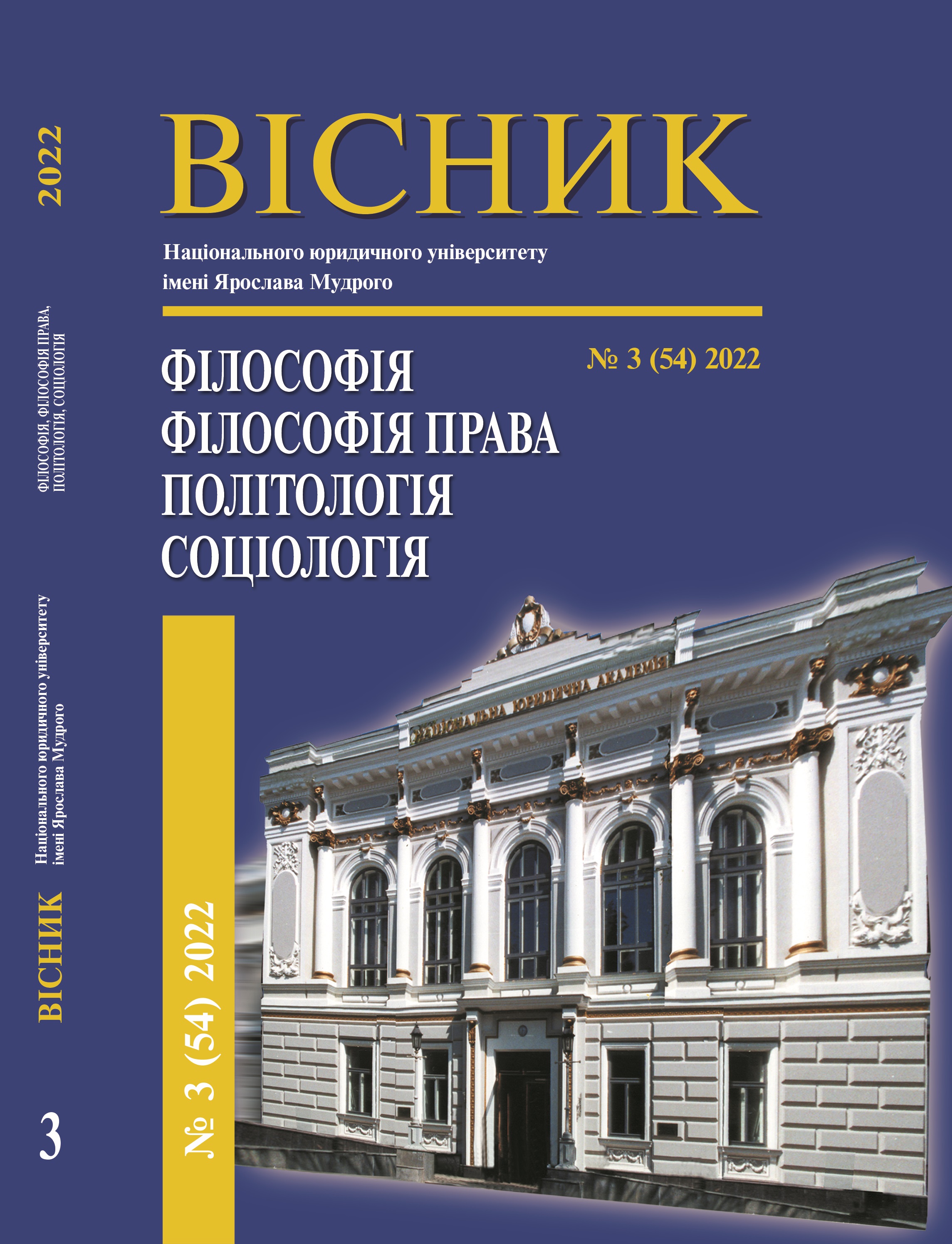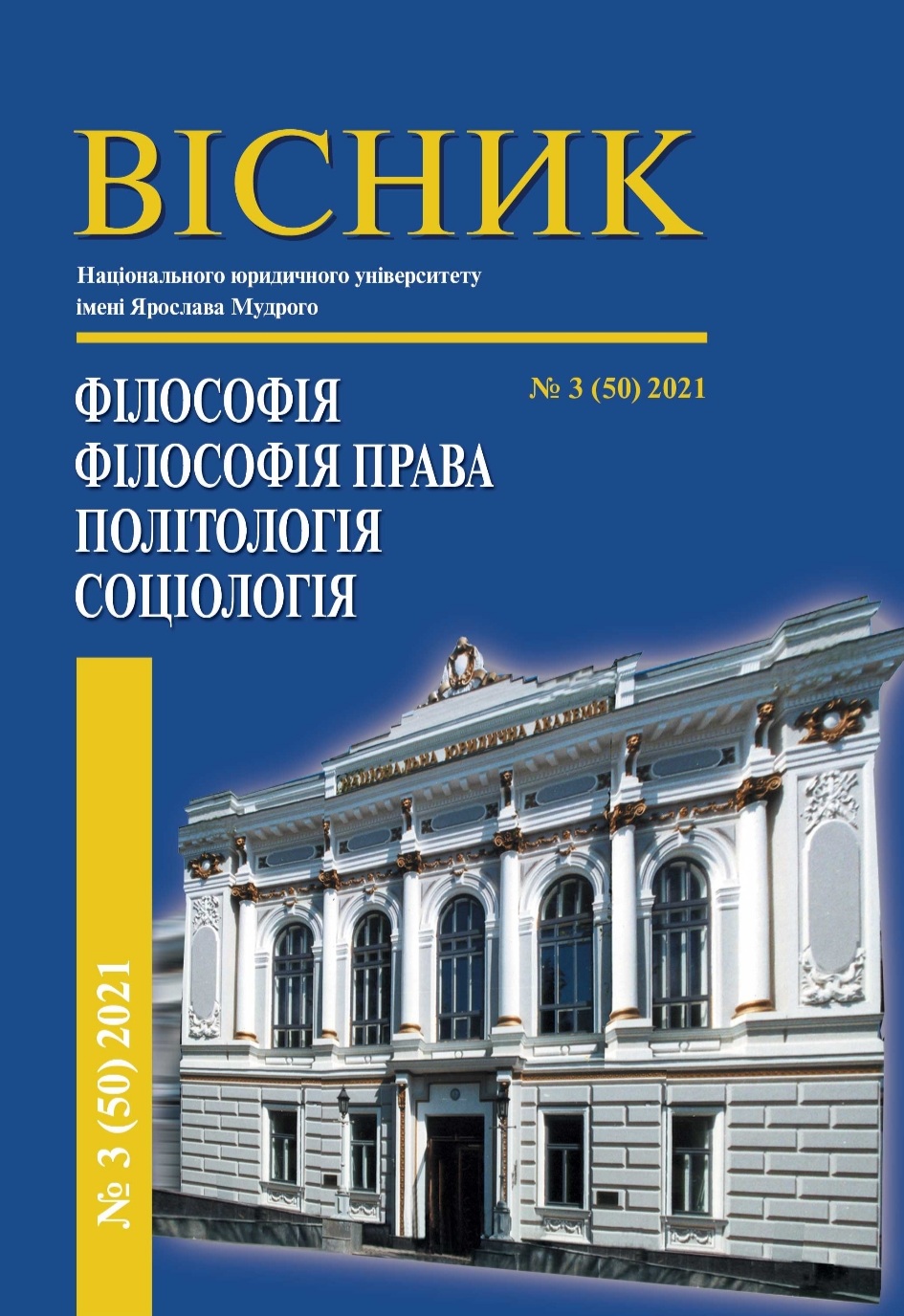ПАНДЕМІЯ КОРОНАВІРУСУ ЯК ЧИННИК ПОСИЛЕННЯ НЕОАВТОРИТАРИЗМУ
DOI:
https://doi.org/10.21564/2663-5704.54.265747Ключові слова:
політичний режим, неоавторитаризм, пандемія Covid-19, якість демократіїАнотація
Аргументовано, що пандемія Covid-19 вплинула на політичну сферу, зокрема трансформацію політичних режимів. Доведено, що такі ситуаційні чинники, як пандемія, посилюють авторитарні характеристики політичного режиму, особливо в державах з нестійкою демократичною традицією. Визначено основні прояви посилення неоавторитаризму, які проявилися під час пандемії: порушення балансу між гілками влади; перенесення чергових виборів; запровадження нових методів масового спостереження; звуження гарантованих прав та свобод людини та громадянина; посилення цензури та контролю за медіа; тиск на опозицію та критичний сегмент громадянського суспільства та ін. Аргументовано, що пандемія коронавірусу деструктивно вплинула на якість демократії в державах з усіма типами політичних режимів, а особливо в державах з неповною демократією, гібридним та авторитарним режимами. Підтверджено гіпотезу, що автократичні державні лідери, відчувши в часі пандемії переваги своєї розширеної компетенції, прагнутимуть зберегти свої додаткові повноваження.Посилання
Maerz, S.F, Luhrmann, A., Hellmeier, S., Grahn, S., & Lindberg, S.I. (2020) The state of the World 2019: Autocratisation surges resistance grows. Democratisation, 27(6), 909–927.
2020 Rule of Law Report. The rule of law situation in the European Union. European Commission. Brussels, 30.9.2020. COM(2020) 580 final. Retrieved from https://eur-lex.europa.eu/legal-content/EN/TXT/PDF/?uri=CELEX:52020DC0580&from=EN
Thomson, S., & Ip, E.C. (2020). COVID-19 Emergency Measures and the Impending Authoritarian Pandemic. Journal of Law and the Biosciences, 7(1). Retrieved from https://www.ncbi.nlm.nih.gov/pmc/articles/PMC7543595/
Hartman, T.K., Stocks, T.V.A., & McKay, R., et al. (2021). The Authoritarian Dynamic During the COVID-19 Pandemic: Effects on Nationalism and Anti-Immigrnt Sentiment. Social Psychological and Personality Science, 12(7), 1274–1285.
Carothers, T., & Wong, D. (2020). Authoritarian Weaknesses and the Pandemic. Carnegie Endowment for International Peace. Retrieved from https://carnegieendowment.org/2020/08/11/authoritarian-weaknesses-and-pandemic-pub-82452
2020. évi XII. törvény a koronavírus elleni védekezésről. Nemzeti Jogszabálytár. Retrieved from https://njt.hu/jogszabaly/2020-12-00-00 [in Hungarian].
European Parliament (2022). European Parliament resolution of 15 September 2022 on the proposal for a Council decision determining, pursuant to Article 7(1) of the Treaty on European Union, the existence of a clear risk of a serious breach by Hungary of the values on which the Union is founded (2018/0902R(NLE)). Retrieved from https://www.europarl.europa.eu/doceo/document/TA-9-2022-0324_EN.html
Coronavirus: India home quarantine families face discrimination (2020). BBC. Retrieved from https://www.bbc.com/news/world-asia-india-52201706
Gettleman,J., & Schultz, K. (2020, 24 March). Modi Orders 3-Week Total Lockdown for All 1.3 Billion Indians. New York Times.
Ahmetašević, N. (2020). Bosnia and Herzegovina’s COVID-19 Response Threatens Fragile Rights. Kosovo 2.0 Retrieved from https://kosovotwopointzero.com/en/bosnia-and-herzegovinas-covid-19-response-threatens-fragile-human-rights/
Sučec/Hina, N. (2020). BiH u velikim problemima: Migranti će morati iza bodljikave žice, slijede nam najteži dani. tportal.hr. Retrieved from https://www.tportal.hr/vijesti/clanak/bih-u-velikim-problemima-migranti-ce-morati-iza-bodljikave-zice-slijede-nam-najtezi-dani-20200318 [in Croatian].
Government of India (2020). Guidelines on the measures to be taken by Ministries/Departments of Government of India, State/Union Territory Governments and State/Union Territory Authorities for containment of COVID-19 Epidemic in the Country, Annexure to Ministry of Home Affairs Order. No. 40–3/2020-D (March 24, 2020), r. 6.
Jordan, Oman, Morocco, and Yemen suspend newspaper production, citing COVID-19 fears (2020). Committee to Protect Journalists. Retrieved from https://cpj.org/2020/03/jordan-oman-morocco-and-yemen-suspend-newspaper-pr/
Morgenbesser, L. (2019). Cambodia’s Transitionto Hegemonic Authoritarianism. Journal of Democracy, 30(1), 158–171.
Fremer, I. (2020). Uzbekistan: Codes Amended to Increase Criminal and Administrative Responsibility amid Coronavirus Pandemic. Library of Congress. Retrieved from https://www.loc.gov/item/global-legal-monitor/2020-09-17/uzbekistan-codes-amended-to-increase-criminal-and-administrative-responsibility-amid-coronavirus-pandemic/
Matyakubova, D. (2020). Behind the Glitter: The Pandemic and Civil Freedoms in Uzbekistan. The Foreign Policy Centre. Retrieved from https://perma.cc/RY5A-WBLC
Holtz-Bacha, C. (2022). More than Just Collateral Damage. Ramifications of the Pandemic for Freedom of the Press. Publizistik, 67, 31–50. DOI: https://doi.org/10.1007/s11616-021-00699-4
Cendic, K., Gosztonyi, G. (2020). Freedom of expression in times of Covid-19: chilling effect in Hungary and Serbia. Journal of Liberty and International Affairs, 6, 14–29. DOI: https://doi.org/10.47305/JLIA2060014c
Andersen, P.T., Loncarevic, N., & Damgaard, М.В., et al. (2022). Public health, surveillance policies and actions to prevent community spread of COVID-19 in Denmark, Serbia and Sweden. Scandinavian Journal of Public Health, 50(6), 711–729. DOI: https://doi.org/10.1177/14034948211056215
Matlosa, K. (2021). Pouring Salt into the Wound: The Crisis of International Election Observation and COVID-19 in Africa. Journal of Asian and African Studies, 56(8), 1967–1981. DOI: https://doi.org/10.1177/0021909621999402
Ang, Y.Y. (2020). When COVID-19 meets centralized, personalized power. Nature Human Behaviour, 4, 445–447. DOI: https://doi.org/10.1038/s41562-020-0872-3
Head, М. (2017). Emergency Powers in Theory and Practice: The Long Shadow of Carl Schmitt. New York: Routledge.




